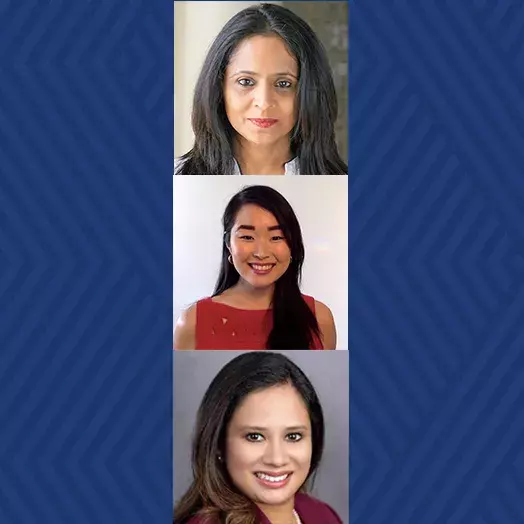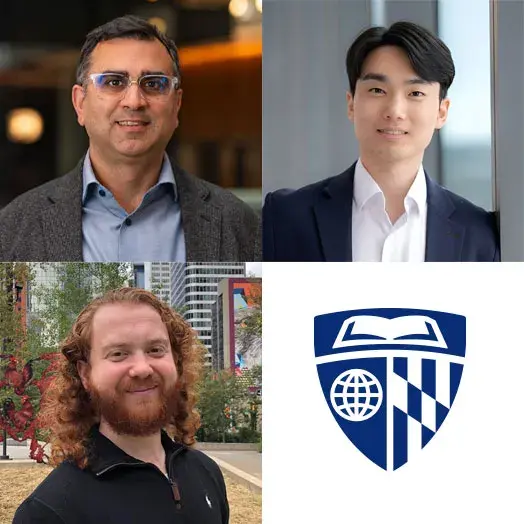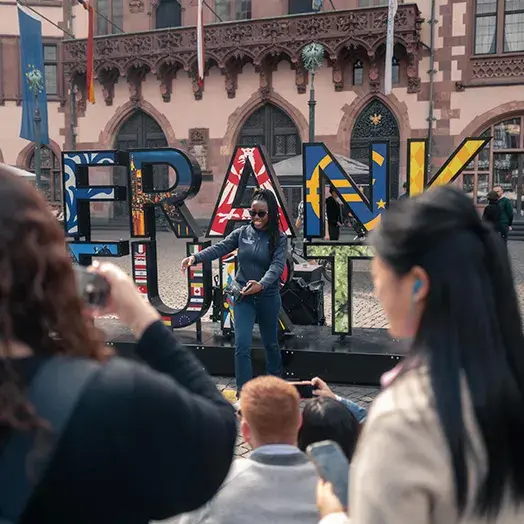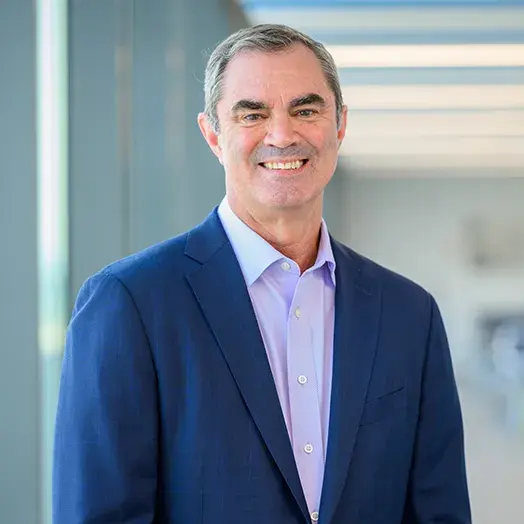
Carey students finish first, win $10,000 in case competition
A Johns Hopkins Carey Business School team took first place, winning $10,000, in the KeyBank Ohio State University Minority MBA case competition on Feb. 27. The 17th annual case competition challenged teams to propose a novel way for KeyBank to expand its consumer banking. It was the first time that a Carey team had taken the top prize at the KeyBank event.
Sabrina Iqbal (Flexible MBA ’22), Padma Samala (Flexible MBA ’21), and Rhianna Taniguchi (Flexible MBA ‘23) considered ways to leverage KeyBank’s brick-and-mortar branches and address the competition from a booming fintech industry. After using design thinking processes, conducting dozens of interviews, and launching a survey to better understand consumer behavior, they decided to pitch an app that increased consumer engagement through a gamification strategy.
“Once you join a bank, it’s often difficult to switch banks, so there are challenges to acquiring new customers,” Iqbal explained.
Their app, which they developed from the ground up, addresses these challenges by encouraging consumers to engage with the bank before becoming full banking customers.
“[Iqbal and Samala] have incredible professional experience in tech and project management. And I, as a consumer, have first-hand experience collecting rewards through gamification apps,” Taniguchi said. “We leveraged their experience as professionals and my experience as a consumer and manifested all of that in a product ready to pitch. It was an amazing culmination of all of our experience.”
They not only tapped into their professional and consumer experience, they also drew from their personal experiences and identities to shape their presentation.
“In our solution, the persona we used was a minority woman. We explored how [KeyBank] can use a minority persona to build relationships and expand beyond traditional customers,” Samala said.
“Through our persona, we are sharing a story about an Asian millennial woman and her impact throughout her multigenerational family. Her name is Maya, a millennial business woman. We used research about millennials and built a product that focused on building community,” Iqbal said.
“We come from different ethnic origins, but we were able to use our shared experience as Asian American women to refine the persona we used in our pitch. We were able to show how Maya’s family and community were structured, and I think that really brought her to life,” Taniguchi said.
Building a team
Just as their Maya character tapped into the resources of her community, Iqbal and Taniguchi met as part of the Carey community and started working together during one of their Carey accounting and finance courses. They then recruited Samala through the Carey case competition LinkedIn group. Iqbal and Taniguchi say that Samala’s background as a program manager and interest in leading the team’s financial analyses made her a perfect fit for the team.
While the judges evaluated the pitches based on presentation, financial analysis, and novelty of the solution, the chemistry and friendship of the team added to its success, according to the three students.
“The absolute best part for me was building lifelong friendships,” Taniguchi said. “For me, it wasn’t all about winning. Relationships must come first. You need mutual trust and respect to collaborate effectively. Leadership brings the best out of others, best in yourself, and best in all situations. We not only cultivated great friendships but worked virtually from different locations and experienced the true meaning of leadership, resilience, patience, teamwork, trust, and perseverance.”
Each of the teammates brought their own skillsets, but they credit the entire Carey community for enabling their success.
While preparing, they met with multiple faculty and staff members, including Ge Bai, Amity Willenborg, Shweta Gaonkar, and Fred Katz of the faculty, and Wendy Crowley of the experiential learning office. The team also reached out to Carey alumni and students who had experience with case competitions.
“Big shout-out to [the Carey alumni] who gave us a framework to tackle the case. We couldn’t have done it without all the support we received from the Carey community,” Iqbal said.
The guidance was particularly helpful because it was the first case competition that any of the three students have participated in. They all agree that they want to pay it forward to the Carey community and future case competition teams.


